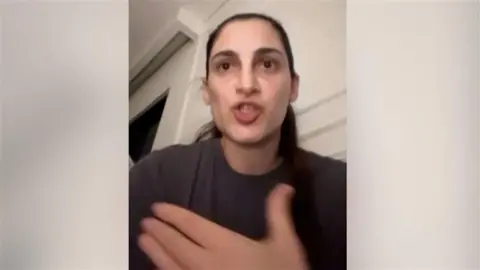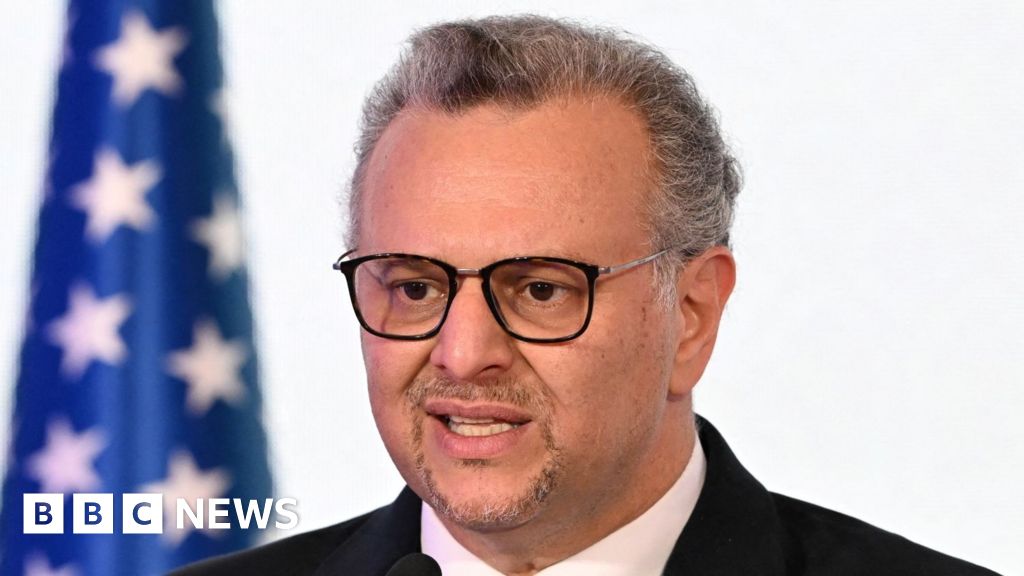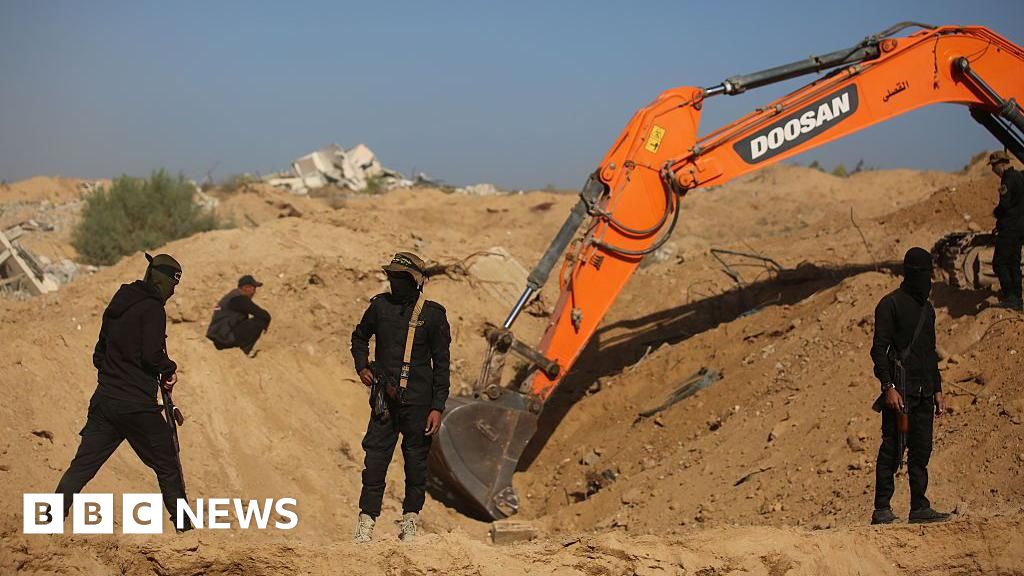ARTICLE AD BOX
Sebastian UsherGlobal affairs reporter

 BBC
BBC
Zeynab Javadli divorced Sheikh Saeed bin Maktoum bin Rashid Al Maktoum in 2019
The former wife of a member of Dubai's ruling family has expressed concern that she could be arrested as her ex-husband has lodged a criminal complaint with local police, accusing her of kidnapping their three young daughters.
Since their divorce in 2019, Zeynab Javadli has been involved in a bitter custody battle with her ex-husband Sheikh Saeed bin Maktoum bin Rashid Al Maktoum, who is the nephew of the ruler of Dubai.
It has come to a head in recent weeks as the children have changed hands between the parents several times, with each accusing the other of kidnapping them.
Ms Javadli also potentially faces arrest for e-crimes - online offences - after she livestreamed the latest showdown.
In going public, she says she realised that she was taking a big risk.
"I knew that it was the last chance to be with my children as they would never let me see them again. I genuinely believed that it was my last chance, so I just opened a livestream and called for help," she said in a video message to her British lawyer, David Haigh.
Ms Javadli was speaking from her house in Dubai, where she claims that she and her three daughters have essentially once again been isolated since she took them back with her after they'd been with their father for several weeks.
Up until then, Ms Javadli had had effective custody of the children under a deal she says was agreed with the ruler of Dubai, Sheikh Mohammed bin Rashid Al Maktoum, in 2022. That agreement, she says, guaranteed her custody of the children until they were 18 years old, as well as a house and other assistance. Their schooling has been paid for by their father.
In return, David Haigh says she had to sign papers saying that she would - among other things - not speak to the media again about her situation, nor would she do any more livestreaming.
A subsequent court ruling granted custody to Sheikh Saeed, but Ms Javadli says she received assurances from those involved in her case that the deal with Dubai's ruler would not be affected.
That remained the situation until two months ago.
That was when - during one of the regular visitations of the children with Sheikh Saeed - that Ms Javadli says she received a message from him through Dubai police telling her there was no need to wait as they would not be returned to her that day.
She heard nothing from them for several weeks. She was finally granted a visitation for three hours at a child protection centre and headed there with her driver on 8 November. She says that when she entered the centre, her children were not there. As she was coming out of the building, she saw them. She says they rushed towards her.
She says they were shouting "Mama, take us from here!" She told her driver to lock the doors and drive them home.
But she claims their way was blocked by cars belonging to people working for her ex-husband. That was when she decided to open a livestream and plead for help. In doing so, she knew that she risked breaking the deal she had signed with the authorities in the UAE and that she could face arrest for doing so, but she insists that it was her only recourse.
She has been at home with her children since then and says she does not dare to go out for fear of arrest. The three girls - aged nine, seven and six - have not been going to school.
The BBC has contacted a number of officials in the UAE, who are involved in the case, for comment, but has received no reply so far. However, the perspective of Sheikh Saeed is clear from court depositions.
The most recent gives a very different version of what happened on 8 November, accusing Ms Javadli of forcibly placing the children into her car with the help of her driver and then kidnapping them. It also accuses Ms Javadli of posting videos on social media in which "she insulted and slandered" her former husband as well as defaming the state and violating state laws.
Previously, lawyers acting for Sheikh Saeed had claimed in court that Ms Javadli was an unfit mother, who had failed to send her daughters to school, was living in a place unsuitable for the children when she was in a hotel, and that she had put the health of the youngest girl at risk.
Ms Javadli rejected the accusations and her Emirati legal team submitted evidence to the contrary in court.
David Haigh says that there've been other similar cases involving former wives of members of Dubai's royal family or other female members of the family. He himself has been involved in campaigning for several of the women. None of these cases involve Sheikh Saaed.
Princess Haya - the ex-wife of Sheikh Mohammed bin Rashid Al Maktoum - fled the UAE in 2019, saying that she feared for her life. Three years later, the princess won a custody battle that played out in the highest court in the UK, which gave her sole custody of their two children.
The most sensational saga was that of one of the daughters of Dubai's ruler, Princess Latifa, who mounted a bid for freedom in 2018 from what at the time she claimed was her family's coercive control.
The boat on which she was making her escape was intercepted in the Indian Ocean and she was forcibly returned to Dubai. She then claimed that she was being held captive in secret videos. She has since re-emerged to a limited extent in public, saying she that she was well and living as she wished.
Ms Javadli and David Haigh say that Dubai portrays itself as promoting women's rights and encouraging women - whether from the UAE or from outside - to lead fulfilling lives, both professionally and personally. For many, this is no doubt the case.
But they claim that Ms Javadli's case shows that beneath the glittering surface of Dubai, for some women the situation can be more complicated and more uncomfortable.

 1 hour ago
2
1 hour ago
2








 English (US) ·
English (US) ·